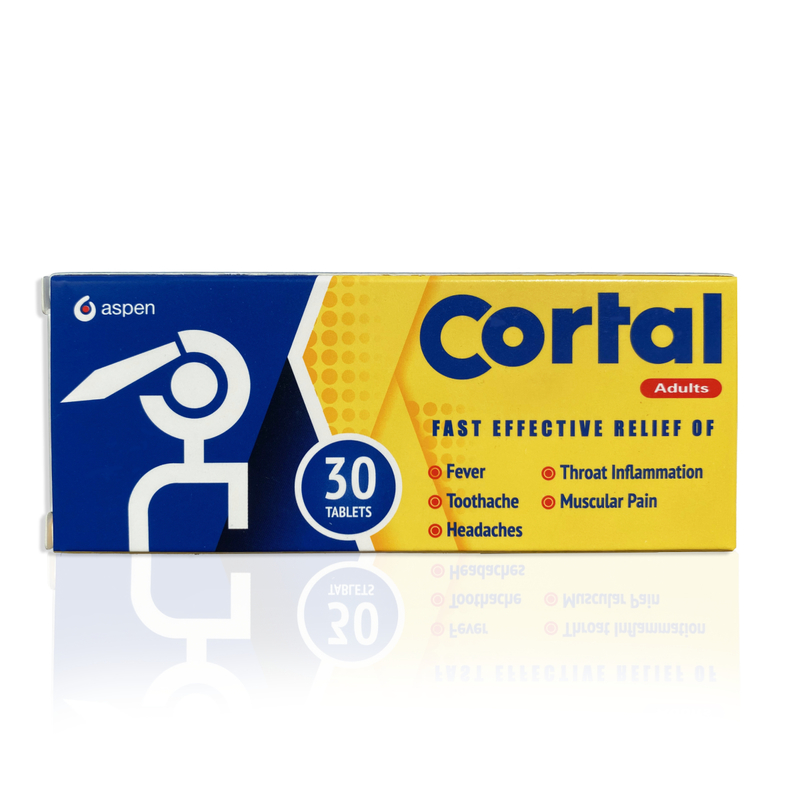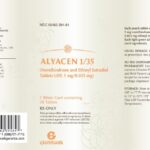Can I Use Cortal For Delayed Menstruation?

Cortal is an effective analgesic for treating pain and fever. It can fast relieve headaches, fever, throat inflammation associated with cold & flu, muscular pain, and dental pain. Cortal Tablet contains aspirin and caffeine as active ingredients. Cortal Tablet works by suppressing the production of prostaglandins and antagonizing the adenosine receptors.

How Cortal tablets affects your menstruation
Cortal Tablet contains aspirin and caffeine as active ingredients, such medication with blood-thinning properties make it less ideal for period pain. If you take Cortal for menstruation, you may notice that your periods are heavier or longer than usual. If you have more bleeding than normal, talk to your doctor. Other painkillers known as nonsteroidal anti-inflammatory drugs (NSAIDs), which include ibuprofen and naproxen, have been shown to have the opposite effect.
A study of over 400 healthy, premenopausal women found that women who consumed a lot of caffeine (over 300 mg daily) were twice as likely to have a short menstrual cycle (less than 25 days) compared to women who didn’t. “The mechanism by which caffeine-containing medications like Cortal may alter the duration of the menstrual cycle is not clear, but such an effect could occur via the effect of caffeine on sex hormones or the hormone receptors,” the researchers write.
Cortal pills can cause constriction of vessels, combined with the diuretic effect of caffeine, which could have other less than welcome side effects, like more painful cramps.
Medications containing caffeine are linked to an elevated frequency of premenstrual syndrome (PMS). Women who consume large amounts of caffeine experience more symptoms than women who don’t consume caffeine. PMS discomfort may include cramping, headaches, breast tenderness, bloating, mood swings, backaches, fatigue, and irritability. All of these symptoms are likely to become more pronounced with Cortal Tablet intake. The increase in caffeine as a result of Cortal Tablet intake can also lead to tension, trouble sleeping, and amplified exhaustion.
Women should avoid Cortal tablets, especially around the time of menstruation because it restricts blood vessels and increases tension and anxiety. Caffeine in the medication heightens cortisol, norepinephrine, and epinephrine, which are stress hormones that are responsible for elevating blood pressure and heart rate. When there’s an increased level of these hormones in the body, the immune system is suppressed because of a reduction of the oxygen supply to the brain. This restricts the blood vessels and causes tension.
What are the side effects of cortal tablets?
The following is a list of possible side-effects that may occur from all constituting ingredients of Cortal Tablet. This is not a comprehensive list. These side-effects are possible but do not always occur. Some of the side effects may be rare but serious. Consult your doctor if you observe any of the following side effects, especially if they do not go away.
• Airway obstruction
• Angioneurotic edema
• Asthma
• Bleeding
• Cerebral hemorrhage
• Chronic arterial stiffness
• Congenital malformations
• Dizziness
• Dyspepsia
• Epigastric discomfort
• Gastric acid secretion
• Gastric erosion
• Gastric ulceration
• Gastrointestinal bleeding
• Gastrointestinal motility
• Hepatitis
• Hepatomegaly
• Miscarriage or growth retardation
• Nausea
• Respiratory alkalosis
• Rhinitis
• Tinnitus
• Urticaria
• Vasoconstriction
• Vertigo
• Vomiting
• Cortal Tablet may also cause side-effects not listed here.





